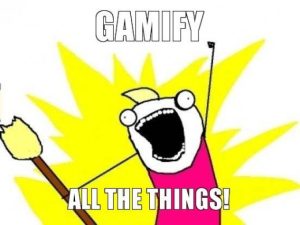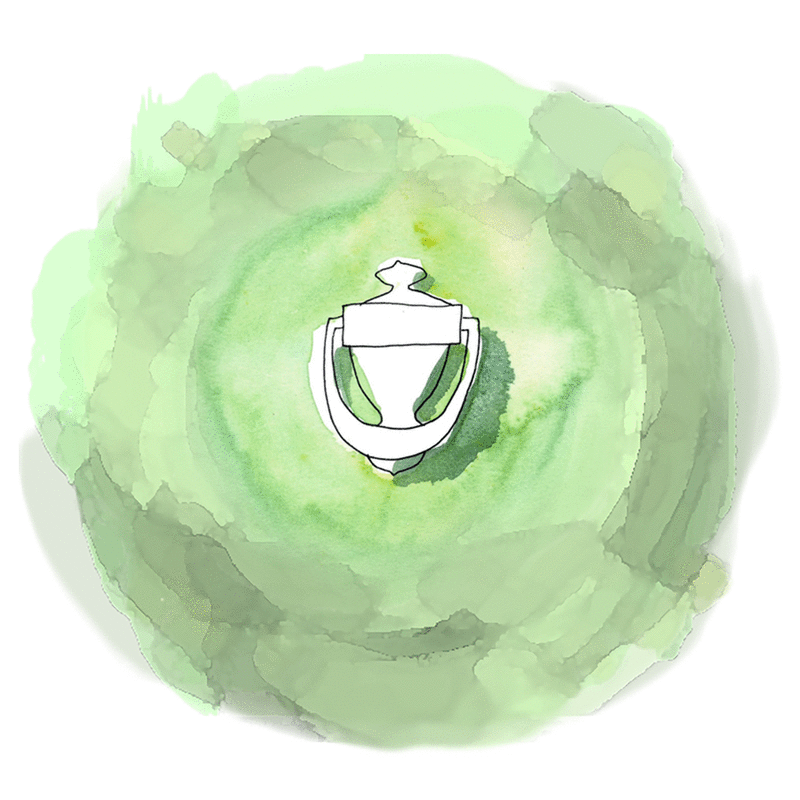
What is Gamification and how can I find out in ten minutes or less? Read on to find the answer.
There’s growing evidence that games may have the ability to change the world. I’m not making this up: the power of games has been profiled by big-name tech periodicals like Mashable and Wired. Museums and schools are building games to educate. Games have been funded by the NEA and the Educate to Innovate program uses games as part of the “call to action” to get kids excited about Science, Technology, Engineering and Mathematics.
This movement of building games to improve social justice, raise awareness, teach, train, heal and explore has many names. You may hear Serious Games, Games for Learning, Games for Health or Games for Good or Games for Change. I also use gameful learning and playful design but they all mean one thing: fun stuff with a social mission. I have a dream that some day there will be one word that means this and we’ll all know it. But for now, we’ve got lots.
Then…there’s “Gamification”. Usually that’s a word used by companies who would like to use game dynamics like leaderboards and points to get people to buy things. What they are often missing is fun. It doesn’t mean that all things can’t or shouldn’t be more gameful or that games can’t be used to influence behavior, it just means that none of the cool kids say “gamification” because it’s kind of evil to have points with no fun. That’s more like… school. So now some people to meet:
Ready? Press PLAY to start.

Ok I lied, nothing really happens when you press play.
We’ll start with two canonical texts for anyone who’s interested in gamification or Games for Change… and by canonical texts, I mean Ted Talks:
#1: Jane McGonical
Though Games for Change had been around for a while, when Jane McGonical spoke at TED in 2010, it seemed like a revolutionary idea. This talk had close to 2.5 million views and said in short: we spend roughly 3 billion hours weekly playing online games. How can we channel these games for social good? There’s some grumbling in the industry about Jane’s rockstar persona but I personally think she’s earned her place as the most recognizable face in the games for good community.
#2 Jesse Schell
This talk is a little different in that Jesse ties the real world into all of this excitement, for instance, real objects that track our usage. It sounds a little creepy, which is why he calls it “gamepocalypse”. This broadens the idea of what a game is and is especially relevant now that most games are being made for phones- so newer games are almost always “invading reality”- and vice versa. I think he does it a little backwards personally, using objects to get us in the game rather than using a game to get us into the objects but this was way back in 2010 and I think a lot of this stuff is starting to shake itself out now.
Both of these speakers have great books that are worth reading: Reality is Broken is by Jane McGonical and The Art of Game Design is by Jesse Schell. I know, I know: 2010 is ANCIENT in the tech world that’s why I said these are “canonical” popular texts (clever, yes?). But wait, one more thing:
#3 Scot Osterweil and Eric Klopfer
So I admit, these guys are not mainstream media with Ted Talks and appearances on the Today Show but they have been doing this the longest and producing THE best stuff from none other than the Education Arcade at MIT. A nice, quick summary on the work they’re doing at MIT is here: http://education.mit.edu/papers/GamesSimsSocNets_EdArcade.pdf
Read Eric’s book, Augmented learning from back in 2008 or compare Eric and Scot’s approaches in the 2011 book, Digital Games and Learning. Scott also recently released one of my favorite new games, Vanished with the Smithsonian:

But a lot of those links were from a few years ago, so what’s new? Well for Jane, new means games for health, which is a huge and growing field. As a doctor (who wanted a game) once told me, the biggest problem for health right now is not medicine, it’s compliance. Jane built SuperBetter as a way to try and get people to set health goals and stick to them. https://www.superbetter.com
Jesse, along with building lots of games and being an awesome thought leader in general, has thrown his weight in with Amplify, a MASSIVE and massively funded games and new media education company. Well-funded and undoubtedly the 300 LB gorilla of K-12 games: http://www.usatoday.com/story/tech/gaming/2013/06/18/lexica-game-classic-books/2431337/.
Scott and Eric, along with leading the charge in research and development at MIT’s Education Arcade also started the Learning Games Network, an incredible game design group building out games like Quandary, the 2013 Games for Change best-in-show winner that deals with compromise and decision-making:http://www.quandarygame.org
So that’s a start! You now know more about Games for Learning than about 90% of the population, congrats! (See now if I were an official gamifier I would give you a Games Primer badge but that’s cheap and I won’t do that to you.)
Check back weekly for more adventures with games for education, arts and culture!



Leave a Reply